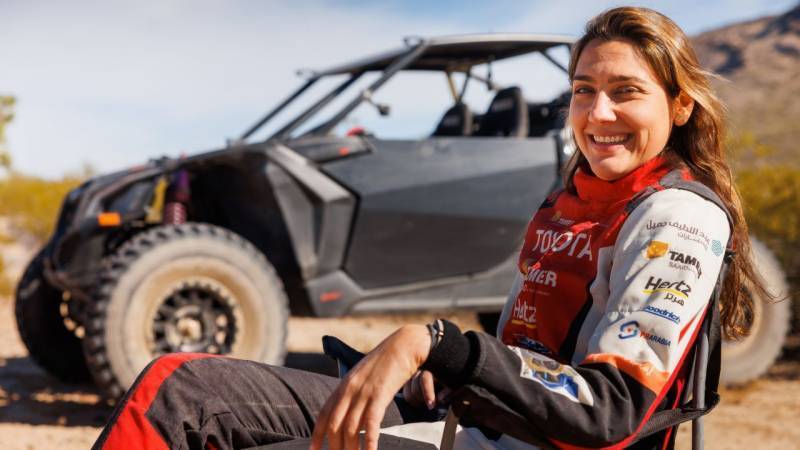As a Saudi woman at the wheel in the Dakar rally, Akeel carries extra baggage

Stay tuned with 24 News HD Android App

As Dania Akeel drives her lightweight vehicle through the Saudi desert in the Dakar Rally she is aware she has to steer a careful course across her home sands.
Akeel is one of two Saudi women competing in the 2023 race and one of only 31 women among 790 competitors.
She represents a visible change in the ultra-conservative kingdom where women have only been allowed to drive since 2018, but, sponsored by the Saudi Ministry of Sport, the country's motor sports federation and a leading Saudi car dealership, she is vulnerable to accusations she is part of a 'sportswashing' campaign.
"I'll go and do my best and at the end of the day your drive is between you and yourself," Akeel told AFP.
"One wants to do well of course, but to do so you just have to focus on the drive.
"Motorsport is not segregated by gender, so I think that the best way to empower women is to drive your best and to be competitive," she added.
When the rally moved to Saudi Arabia from Latin America in 2020, two years after the assassination of the Saudi journalist Jamal Khashoggi, it drew widespread criticism for becoming part of Saudi 'sportswashing', a strategy of using sports as a distraction from human rights controversies.
Cristiano Ronaldo last week became the latest high-priced sporting jewel adding lustre to the country's image when he joined the Al Nassr club.
Other sporting ventures include the rebel LIV Golf series, which offers huge contracts and purses to attract stars, heavyweight boxing title bouts and a Formula One grand prix. The country's Public Investment Fund bought Premier League club Newcastle in 2021 and is being linked with Manchester United.
Human Rights Watch said that despite the "progressive image conveyed" by sporting events, the lack of opportunities for women and girls to participate in sports remains.
'What sponsors are paying for'
Akeel turned professional last season and finished eighth overall in the T3 lightweight prototype category in her first Dakar. After Monday's second stage, Akeel, and co-driver Sergio Lafuente, were 14th out of 46 remaining drivers in the class.
She started driving in the desert in buggies owned by cousins and acquired a driving licence after moving to England as a student at 17.
Akeel avoids criticising either the restrictions on Saudi women or the recent easing.
Before the ban on women drivers was lifted, "I didn't really have any problem" because her family "took me to places and so I didn't feel limited."
"Then when they opened the tap and we were able to drive, I saw it's actually a wonderful feeling and it does have an impact for sure."
Saudi human rights campaigner Lina Al-Hathloul, who is based in Europe and whose sister Loujain was jailed by the Saudi government, is sceptical.
"If the athletes are participating and are part of the Saudi government's public relations machine, it's not really useful," Al-Hathloul told AFP.
"They are simply feeding the regime's propaganda and are part of the cover-up," in "a Saudi civil society that has been muzzled and silenced."
Al-Hathloul worries that long-term sports sponsorship outlasts outrage. "The pressure has faded," she said. "People tend to be less critical for their own sake but (rights) violations are increasing".
Akeel, who studied modern history and politics at Royal Holloway College outside London and then gained a masters in business studies in the United States, is acutely aware that visibility pays.
"I don't imagine a situation where I will enter a race like this and nobody will have an opinion, that will never be the case.
"And, actually, it's what the sponsors are paying for," she said. "For me it's useful to be in the public eye, otherwise I wouldn't be able to finance my season.
"For sponsors, it can be an asset being a woman and speaking to a bigger audience and that's why they chose me."
While Akeel was careful to stay on track when discussing Saudi politics she said she was happy to compete and to draw attention to her country's "topography".
"To be able to see the country from the off road perspective is really a privilege.
"I'm there because I love to drive."
